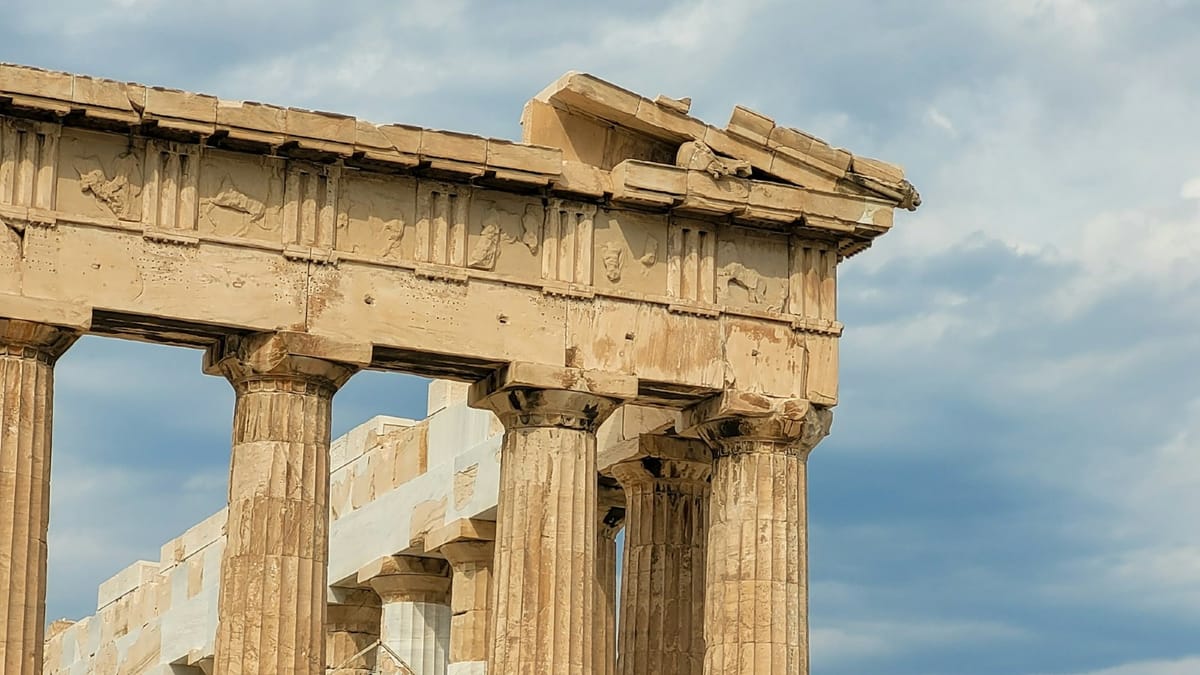
Greek Culture Minister Lina Mendoni has criticized the British Museum for hosting its inaugural fundraising ball in the gallery housing the Parthenon Marbles, a collection of disputed classical Greek sculptures, friezes and architectural elements removed from the famed Athens temple in the early 1800s and now held in London.
When earlier this month the British Museum announced the sold-out “Pink Ball,” as it has been called for this year’s pink theme, organizers promised to “transform the museum as never before.”
“Guests will arrive to a drinks reception and speeches in the iconic Great Court, before taking their seats for dinner at tables set amid some of the most spectacular objects in the museum collection,” the British Museum said.
It did not disclose then that one of the galleries where guests would be seated would include the Duveen Gallery, which houses the marbles.
A photograph showing guests seated at a long table near the marbles was obtained by the Times of London, which reported that stars attending the £2,000-a-ticket event included Mick Jagger, Naomi Campbell, Janet Jackson and Kristin Scott Thomas.
"The Ministry of Culture has repeatedly and consistently condemned dinners, receptions, and fashion shows organized in museums, where monuments and works of art are exhibited. Such actions are offensive to cultural property and endanger the exhibits themselves,” Mendoni said in a statement.
“This is exactly what the British Museum's management did last Saturday, once again using the Parthenon Sculptures as decorative elements for the dinner it organized. The security, integrity, and ethics of the monuments should be the primary concern of the British Museum, which once again demonstrates provocative indifference.”
The Parthenon Marbles, also known as the Elgin Marbles, once adorned the Parthenon temple on the Acropolis of Athens. They were chopped up and removed by British diplomat Lord Elgin, who claimed to have obtained permission from the Ottoman authorities then ruling Greece, and later sold to the British Museum in 1816.
Their ownership has long been the subject of an acrimonious cultural dispute between Greece and the United Kingdom. Greek officials argue that the sculptures were taken illegally during foreign occupation and should be reunited with the remaining pieces displayed at the Acropolis Museum in Athens.
The British Museum contends that Elgin acquired them lawfully and that their display in London allows global audiences to appreciate Greek civilization. And to permanently hand over the Parthenon Marbles, the British government would need to amend the British Museum Act 1963, which prevents the deaccession of items.
Tensions have escalated in recent years amid reports of secret talks between the museum and the Greek government over a potential long-term loan arrangement, though both sides deny any imminent deal.
Greek officials publicly renewed calls for their permanent return in 2023, prompting a diplomatic spat with London. But in June, the British Museum confirmed in a statement to The Critic that talks with Greece were “ongoing and constructive.”
